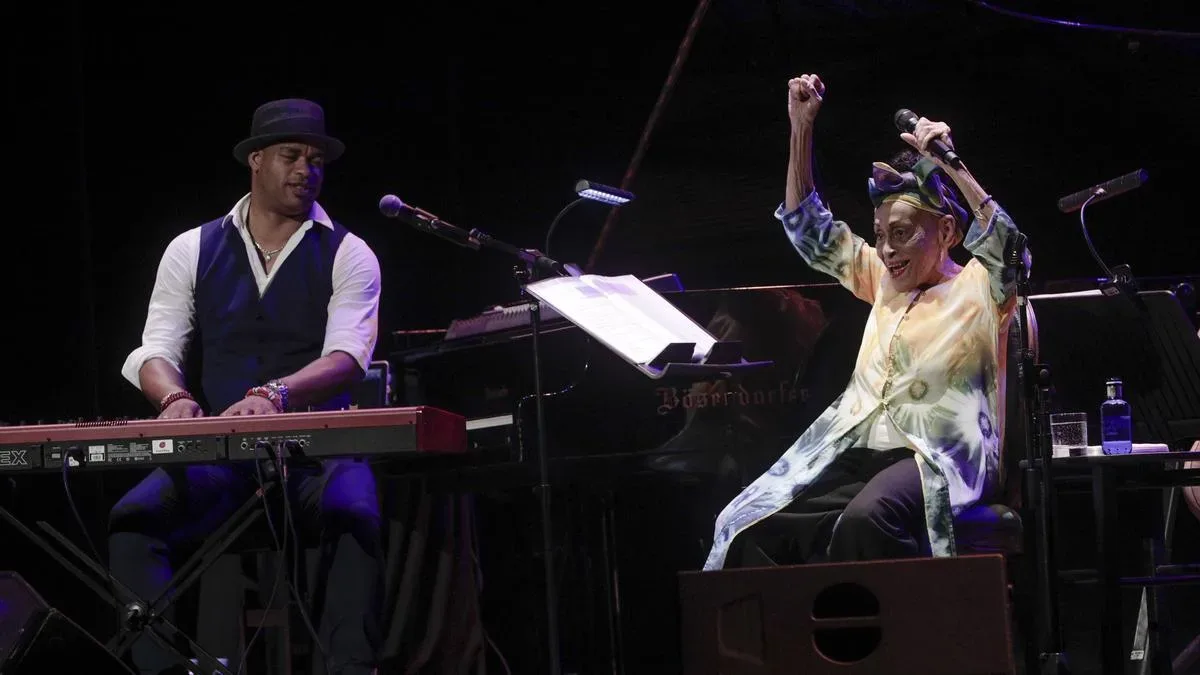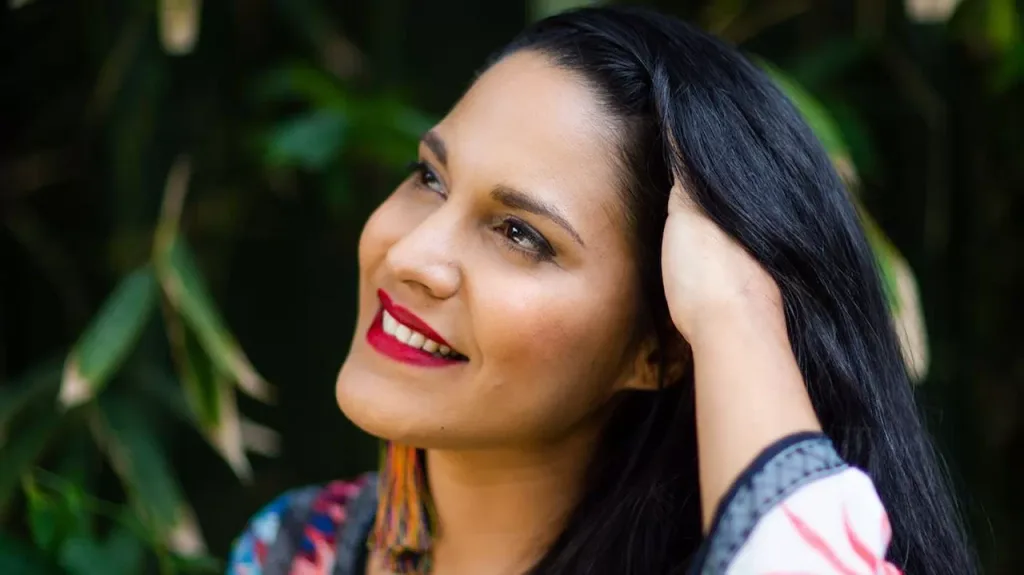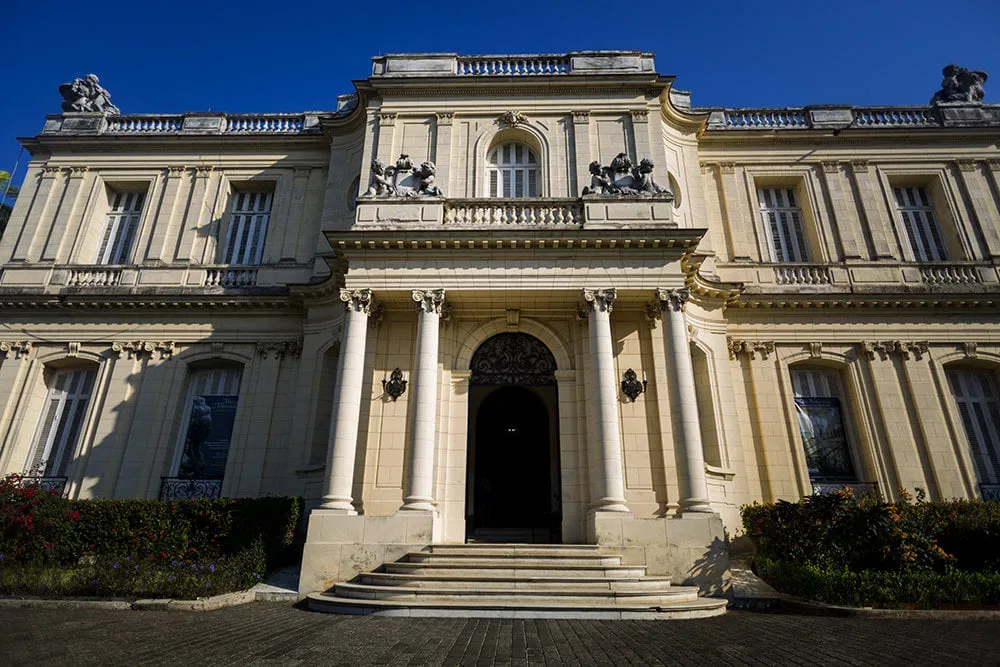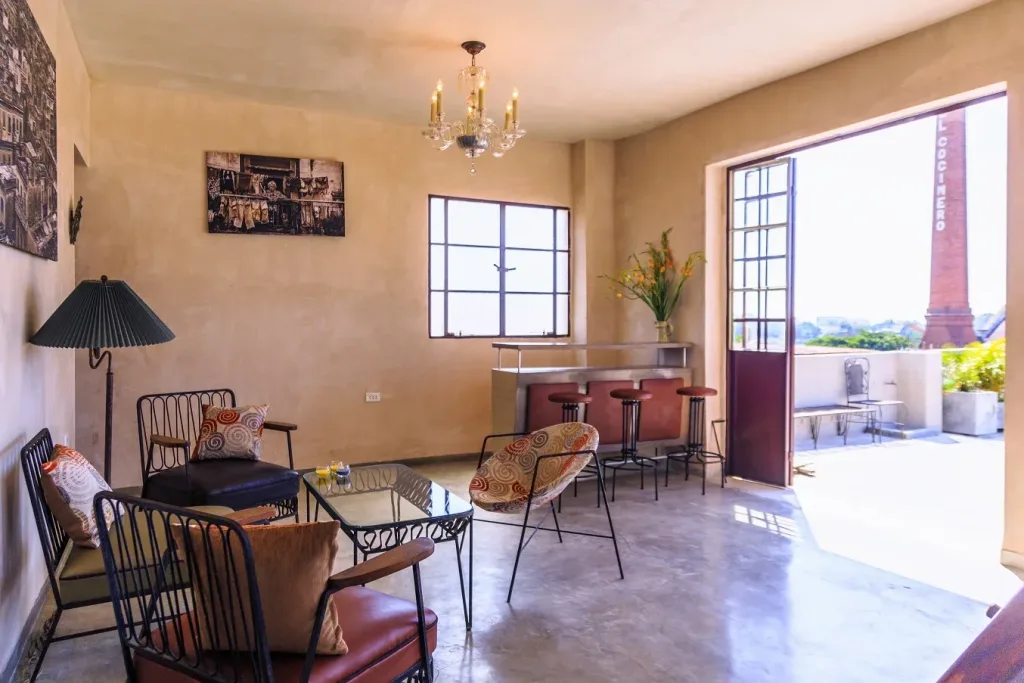Omara, the one who doesn’t need more surnames and epithets, has a place in the firmament of the Cuban music, she is a great son and bolero singer. It was not by chance that she was named The Diva of Buena Vista Social Club or The Bride of Feeling. All of these in spite of the artist who is very humble and doesn’t like being overrated, even though it is the truth. To be honest, Omara Portuondo is immense. When she sings any song, it seems as if it were heard for the first time. Her technique, talent and creativity are absolutely marvelous; she reaches tones that are unachievable for others, as if she were crossing unprecedented paths, different ways, in order to bring to us an entirely new song.
The artist (Havana, October 29, 1930) celebrated her 90th anniversary last year. A perfect moment to stop at the summit of her career, look at her whole life and caress the memories…
After two years in different groups and institutions, 1947 marks the beginning of a long career when she entered the Loquibambia Swing group, integrated by the pianist Frank Emilio and the guitarist/singer/composer Jose Antonio Mendez, among other creators. They played jazz with singers such as César Portillo de la Luz, and made a kind of music that was influenced by this rhythm: the feeling, as it was named later. As Omara says, on her radio debut she was baptized as Omara Brown (because of the jazz music), and they added “the bride of feeling”…
In 1951 she became a member of the quartet of Orlando de la Rosa (pianist and composer), integrated by Aurelio Reinoso, Adalberto del Río y Roberto Barceló. They went on a tour across the United States of America, which took them to New York, Philadelphia, Cincinnati, Nevada, and later on to Canada. From 1952 to 1953 she formed part of the emblematic women orchestra Anacaona. Between 1953 and 1957, Omara Portuondo left her marks as a founder-member of a vocal quartet, that was a school: Las D’Aida, integrated by Elena Burke, Moraima Secada, Omara y Haydeé Portuondo (her sister), with Aida Diestro as director. They went on many tours across America presenting many innovative vocal arrangements made by Aida, and they could share the scene with important figures like Pedro Vargas, Edith Piaf, Bola de Nieve, Rita Montaner and Benny Moré. Nat King Cole was accompanied by them when he performed at Tropicana cabaret…
Omara Portuondo began to see her name in solo in 1959 with the album Magia Negra (Black Magic), which included jazz songs and pieces of the Cuban music. Although she continued with Las D’Aida quartet until 1967. It was in this year when she finally began her solo career, performing in Cuba and in some Festivals through the world. She got the First Prize for the best interpretation in the Golden Orpheus Festival (Bulgary); she participated at Cannes Festival (France), the Golden Lyre (Bratislav, Czechoslovakia), Dresden (Germany)…
In our Isle, she is was always present in the most important song meetings and festivals, until 1996, when she joins the Buena Vista Social Club project. Then, Omara Portuondo returns to the international circuits, and makes various recordings with important Cuban record companies and some other from countries like Spain and England. It is an important period in which her name continues breaking records in theaters, until 2009 when she won the Latin Grammy Award in the category of Tropical Contemporary Album with Gracias (Thanks), an album with traditional music, boleros, jazz…, all that has been part of her life.
Without any doubt, Omara is one of the greatest voices of the Cuban music of all time, who in over 70 years of professional life, has received standing ovations from the spectators at the Carnegie Hall in New York, at the Olympia in Paris, the Philharmonic of Munich, the Jazz Festival of Japan, the Zocalo in Mexico City…, among many others well known squares. In addition to all that, in 2019, she was recognized with the Rising Sun Order, the Golden Rays with Rosette, the highest honor awarded by the Japanese Government. In 2020, she is one of the personalities whom the Cuban Culture Day is dedicated to.





